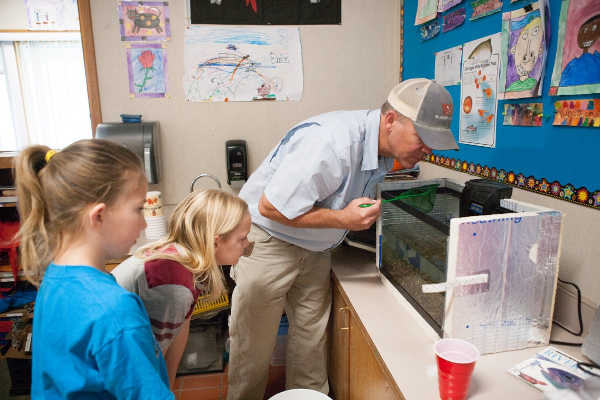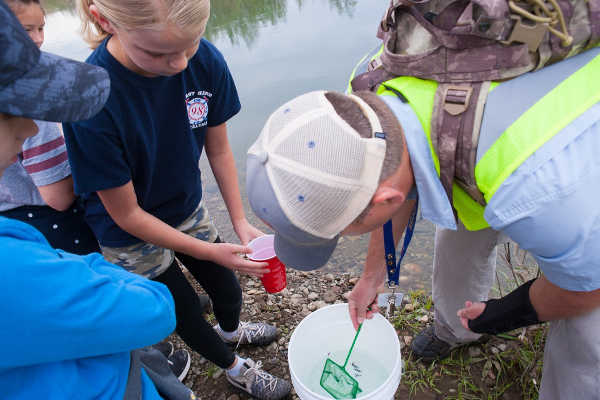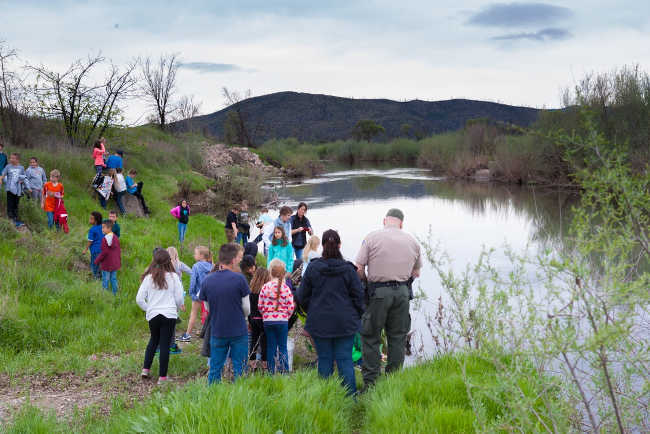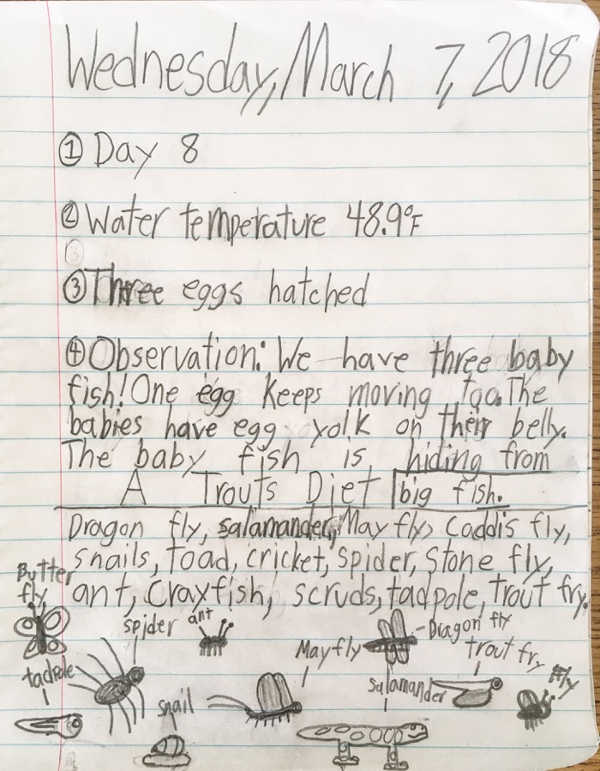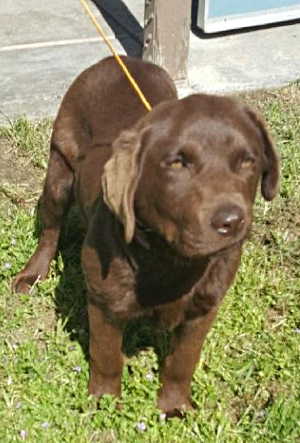HIDDEN VALLEY LAKE, Calif. – Hidden Valley Lake Association’s former golf professional, who won a $2 million settlement against the association in federal court after a jury unanimously concluded that he had been the victim of malicious conduct, including defamation and violation of his privacy, is set to return to court this month as the association challenges the ruling.
Federal Northern Court District Judge Susan Illston finalized the verdict in favor of Wayne Clark on Feb. 9, following a seven-day trial in San Francisco.
The jury found for Clark in his claims for violation of privacy, defamation, negligent infliction of emotional distress and intentional infliction of emotional distress.
However, the two-year-old suit is far from settled.
As Clark’s attorney Victor Thuesen was preparing to execute the judgment to collect the award, the association’s attorneys on March 1 filed motions for summary judgment and a new trial, the first steps in seeking to overturn the verdict.
The initial hearing on the association’s motion seeking to overturn the verdict is set for later this week.
Thuesen said the federal appeal process could take as long as a year and a half to complete, with the settlement accruing 1.5 percent interest during that time.
Hidden Valley Lake Association General Manager Edward Simpkins and board members did not respond to requests for comment from Lake County News.
When contacted about whether the association had a formal statement in reaction to the judgment, attorney William A. Munoz of the firm Murphy, Pearson, Bradley & Feeney, who is representing the association, said there was no comment at this time.
As such, there has been no explanation about how the suit will be paid if the verdict stands, a concern now being raised by association residents.
In his 40 years of handling cases, including those involving employment and termination, Thuesen said he hasn’t seen one with defamation being as prominent. “This was over the top, just totally over the top.
He added, “This was the most malicious case I’d ever seen,” noting that the jury picked up on it.
In an interview with Lake County News, Clark – who has been a golf pro for 28 years – said he and his wife and daughter moved back to Washington state to take care of his elderly father. He’s now the assistant golf professional at Walter E. Hall Golf Course in Everett.
HVLA “absolutely ruined my career,” he said, explaining that he’s now having to work at minimum wage and finds his name permanently damaged in the small, tight-knit golf professional community.
“It’s all about reputation,” he said. “That’s what my profession is all about.”
He said some people look at the award and think it’s a big award. Between attorney’s fees and taxes, Clark said his family will only get a small portion.
“It was a tough thing on our family what we went through, obviously,” Clark said.
For him it was about clearing his name, although he said that in the golfing community he’ll always be seen as the guy who sued his former employer.
He said what he’s been through is “almost a Hollywood movie.”
The foundation of the case
Clark was hired in 2011 as HVLA’s director of golf, a job he held for about four years.
He said he and his family loved Hidden Valley Lake. They made many friends and he hoped to stay there for the rest of his career.
“We were such a part of that community,” he said.
Clark said he was building a junior golf program, and that the association had a good management team at the time the Hidden Valley Lake Association hired Cindy Spears as its new general manager in May of 2014.
Clark said many of those team members would leave as a result of Spears.
Spears – who said in a Lake County News interview from June 2014 that she had three decades of property management, hospitality and golf management in Florida, Georgia and South Carolina – arrived when there was deep disagreement between the board and a group of homeowners over millions of dollars of proposed improvements, including a new community center and clubhouse.
According to case documents, in April 2015 Spears gave Clark verbal notice that she was terminating his contract for no cause, effective that day, despite the fact that he had had not received any negative performance evaluations or been informed that he wasn’t performing his job appropriately.
It’s Thuesen’s belief that political pressure about the HVLA golf course and Clark’s ability were key drivers of Spears’ decision to fire Clark, which the board ultimately supported. When Spears informed Clark he was being terminated, she said she believed he had been undermining her, and Clark replied that he hadn’t intended to do so.
When Clark asked to go back to his office and collect his personal belongings, Spears said no, and had security march him out, Thuesen said.
“That’s where the trouble began,” Thuesen said.
That same day, Spears concluded that Clark had pornography on his work computer. That claim then extended to allegations of embezzlement, misuse of the company credit card and several other claims attacking Clark’s reputation, according to Thuesen.
In response to backlash from the community, eight days after Spears terminated Clark she went into an executive session with the HVLA Board. Thuesen successfully subpoenaed the closed session minutes, which showed that Spears promoted the idea that there were 600,000 images on Clark’s computer, some of them of child pornography.
“She decided to bury him,” Thuesen said of Spears’ intentions toward Clark.
Ultimately no evidence of pornography was found, a fact confirmed acknowledged by Spears herself in a legal declaration submitted this past fall; at trial, a sheriff’s deputy also testified that no pornography was found, Thuesen said.
The case documents explain that the damaging claims Spears made against Clark also included that he drank and watched pornography while at work, he mismanaged golf operations, that his employment contract was illegal and invalid, that he didn’t pay for food and drinks at the HVLA bar, that the association paid for his participation in golf tournaments inappropriately, that he was about to be arrested for criminal activity and that he had been terminated “for cause.”
Spears made such claims to other HVLA employees and leadership, and passed the information to other individuals to publish on social media and the Internet, according to the case documents.
Clark said he believed the issues really came down to a sharp divide between the homeowners who don’t support golf and those who do.
He said a previous board of directors he had worked under there would come to him if they had questions about the golf operations. However, that stopped when a newer board came on.
As the fallout continued on social media, Clark – even after his termination – continued to be a target.
“Some of these people that posted about me, how they could say the stuff about another human being without ever talking to that person,” he said.
Clark said he believed that most Hidden Valley Lake residents are good people just living their lives, and that it was just a small group of people involved in the online forums that were so damaging to him personally.
Clark said it got to the point where his family couldn’t go to the grocery store any longer. Friends stopped calling. The toll on his young daughter increased.
In the summer of 2015, his mother died. His father has dementia and the family decided to move to Washington to be close to his father.
Clark said that, considering everything, it was hard to move. Then, the week his family was trying to move to the Seattle area, the Valley fire hit and they were evacuated.
He credited the association’s golf course and the green space it created for saving the community from even greater loss than the 60 homes the fire destroyed.
Spears herself was gone from her job within a year of terminating Clark.
Clark called it “a tough, dark time” in Hidden Valley Lake’s history.
The case develops
In April 2016, Clark filed his federal lawsuit against the Hidden Valley Lake Association and 20 “Does” or unnamed defendants.
One of the key issues in the case was that Spears was the association’s main witness, yet she couldn’t be located to testify at trial.
Thuesen said he had private investigators trying to track her down, but to no avail. “We learned very early on that we weren’t going to reach her.”
Then, he said, something weird happened: In September, the association filed a motion for summary judgment and presented a declaration signed by Spears, after having told the court under oath that they couldn’t reach her.
The 450-page filing included an eight-page document containing Spears’ declaration in support of the association’s summary judgment motion.
In her statement, Spears referenced the controversy over the golf course, noting it was the subject of heated debates on social media and at public meetings.
“During the majority of my tenure as GM, through April 15, 2015, Plaintiff Wayne Clark was the acting Director of Golf for HVLA. His position put him in the center of the debate regarding the growing disdain for the golf course and the expenses related, with the golfers blindly supporting his management and operation of the golf course,” Spears said in the declaration.
She said she had reviewed the existing contracts with managers and found that the prior general manager had signed a renewal contract with Clark without board approval. “In fact, I told Plaintiff directly about my concerns regarding the lack of board approval, as well as the board and potentially some of the members. However, I never discussed the details of Plaintiff’s contract. Moreover, I honored Plaintiff Clark’s contract during his employment as though it had been board approved,” she said.
Spears said she had concerns about Clark’s performance and conduct. “After fielding these concerns with fellow managers and employees involved with various situations, I reported these concerns to the board on more than one occasion. As time progressed, my difficulties in managing Plaintiff Clark only grew worse. Thus, shortly before his termination, I asked Julie Vonada, HVLA’s human resource manager, to create a list of bullet items to review with Clark in a disciplinary discussion.”
Emails submitted in court documents showed that on March 3, 2015, Spears emailed Vonada asking for statements from other staff to do a write up on Clark.
Vonada replied on March 5 with a list of bullet points that took away his oversight of the food and beverage director, accused him of socializing too much and not following up on tasks, faulted him for allowing his assistant to give golf lessons when his contract requires him to do all lessons, telling him to be more respectful in conversations with staff and customers, and stating that he had not gone to the golf maintenance yard to show support for the team.
Spears’ declaration stated that the situation with Clark “came to a head” following a Golf and Greens Committee meeting on April 7, 2015, and an opinion piece Clark published in an association magazine. “Later, I addressed the board again regarding my problems with Plaintiff Clark as director of golf, in executive session. The board then gave me authority to handle the problems in any way which I saw fit, up to and including termination of Plaintiff Clark’s employment contract.”
She confirmed that she terminated Clark’s employment on April 15, 2015, pursuant to the “no cause” provision.
“The board reported this to the membership. I did not communicate to the membership that I had terminated Plaintiff Clark ‘for cause,’” Spears stated.
Spears said Julie Vonada then took on the task of cleaning out Clark’s desk to return his personal items. “In so doing, Ms. Vonada reported to me that she had located questionable items including photographs of young girls is scant clothing, a Maxim magazine, and alcohol not belonging to the association. Ms. Vonada sent me photographs of the contents of Plaintiff Clark’s desk, which I forwarded to the board members.” The document included an exhibit showing copies of the emails and a picture of a Maxim magazine and a bottle of alcohol in a drawer.
Spears’ declaration continued: “It was my understanding that Plaintiff was acting as an assistant coach of the youth golf program and using our facilities to do so. Thus, I felt concerned regarding the photographs in Plaintiff’s desk and asked HVLA’s IT manager to review his computer. The IT manager reported that he did locate questionable images on Plaintiff’s computer but he could not determine whether they were of youths. Thus, I discussed the matter with the board and determined the obligation of the association was to make a report to authorities and let the authorities handle any investigation. I reported my concern to various association managers or perhaps employees, to ensure there was nothing further to report. Our executive assistance was also aware, given that she was in charge of board minutes and board meeting packages. I did not disclose the contents of Plaintiff’s desk to members, however. Rather, many of the members were likely in contact directly with the law enforcement agency and/or the deputies performing the inspection of Plaintiff’s computer, as Plaintiff was then at the center of a public debate regarding his role as Director of Golf and whether his termination was a move towards reducing the subsidization of the golf course or done for other reasons.”
The statement added, “Ultimately, the law enforcement agency returned Plaintiff’s computer and reported nothing of concern was located on the computer. I reported that as well to the board, and to any employees with knowledge of the investigation.”
Thuesen said he filed opposition to Hidden Valley Lake’s motions, and in that filing included a declaration by Clark that the photos of the items in his drawer had been staged.
Clark said he had a cold at the time and had set a roll of toilet paper that he was using for tissue on his desk. The photo showed that roll of toilet paper in the drawer, where he hadn’t left it. He said a Maxim magazine was in the drawer but the photos were not.
Thuesen said Richard Pritchard, the current director of golf, also would give testimony, both in a deposition in response to the association’s motion for summary judgment and during testimony at trial, that the alcohol bottle was his, that it had been given to him, and that it was on a shelf, not in that drawer.
During a hearing on Hidden Valley Lake’s motion for summary judgment, Thuesen said Judge Illston asked how the association could say they didn’t know where Spears was but could get signed declaration. The response was that they claimed they reached her via telephone and Internet.
Judge Illston followed up by issuing an order that the association turn over the contact information it had for Spears to Clark.
As a result, Thuesen received an email address and phone number, which he used for two days running in the fall in an attempt to contact Spears. He couldn’t reach her.
Shortly after that, in court Judge Illston raised the issue of locating Spears, and told the association that without her it couldn’t defend the case, Thuesen said.
Thuesen said it’s common in employment-related cases that people still working for an employer that’s involved in the suit are too intimidated to testify. That wasn’t true in Clark’s case.
“In this case, the fact that she [Spears] was not there, the employees came out of the woodwork,” said Thuesen, noting that evidence was coming from everywhere.
He said managers gave depositions and testified, and told of Spears exhibiting similar damaging behavior toward others and provided additional evidence of what she had said about Clark.
Thuesen said the evidence gathered ahead of trial as well as the testimony given during it would paint a picture of Spears as a person who traded in “harsh gossip.”
The trial
Thuesen said the trial began on Jan. 29 in San Francisco federal court.
He said a key piece of testimony at court was that a Lake County Sheriff’s deputy said a test of Clark’s computer found no evidence of pornography.
Thuesen subpoenaed two individuals who had attacked Clark online as adverse witnesses: Mike Gingerich and Michelle Wade.
Wade is credited as a founder of the HVLA Forum Facebook page, and Gingerich was a frequent poster about Clark on Facebook as well as the “HVL Owner Advocate” and “HVL Panorama” Web sites.
Numerous posts made by both Gingerich and Wade were submitted as exhibits for the trial.
After receiving his subpoena on Dec. 14, on Dec. 20 Gingerich sent out an email whose recipients included Lake County News, stating, “‘Freedom of Speech’ does not exist for most members within HVLA. It only exists for a small, elite few, as it always has. Only that small group can say whatever they want and suffer few, if any, consequences. For the rest of us, BEWARE…..This is part of the price I must pay for speaking out on behalf of my investment in HVLA.”
The association’s September filing of its motion for summary judgment included email correspondence between Gingerich and Spears in which he asked if it would help or hurt the association for him to release details about the situation.
Gingerich did not respond to a request for comment from Lake County News.
Thuesen said the testimony of both Gingerich and Wade helped Clark win the case.
In court Thuesen successfully argued that Spears used Wade to make “scatalogical” posts about what she claimed was found in Clark’s desk, and that she used Gingerich to go after Clark as the bad guy in the golf operation.
Gingerich claimed Spears didn’t tell him anything, but Thuesen produced evidence to the contrary, including several emails and a letter in which Spears gave him an outline of what to say next. “He was not a good witness for them,” said Thuesen.
During depositions and at trial, Wade denied communicating with Spears or being friends with her. However, Thuesen said testimony from others – including Julie Vonada, who had been Human Resources director at the time, and Spears’ former administrative assistant – made the connection between Spears and Wade.
Vonada testified that Spears told her she was sending information to Wade, who she called her “little birdie,” a term she also used to describe Wade to her administrative assistant, Thuesen said.
On the day she fired Clark, Spears was overhead making phone calls reporting that she had fired Clark and that she had found pornography in his desk, based on the testimony at trial, Thuesen said.
“She came across as a person who was not telling the truth, on anything,” said Thuesen, adding that he knew the verdict would depend on whether or not the jury believed her.
At trial, the issue of what Spears claimed was found in Clark’s desk on the day of his firing also was addressed.
Vonada, who left the association herself about a year afterward, testified. Thuesen said her testimony was very much in Clark’s favor.
Vonada stated that Spears had told her she was going to fire Clark, Thuesen said. She said she told Spears she was not comfortable being present for the firing, as she had no idea why it was occurring. Spears told her to go and wait in the restaurant.
In the meantime, Spears informed Clark that he was being fired, Clark asked to go back to his office for his personal items and was told no, so he asked for his things to be delivered to him, according to Vonada’s testimony.
Vonada then testified that she received a call from Spears to go and get Clark’s personal items, according to Thuesen.
Thuesen said he believed the photographs were staged. “I just can’t see him having those anywhere,” he said of the photos of scantily dressed women found in the drawer.
The trial took place for seven days, with jurors deliberating for about six hours on an additional day, according to Thuesen.
“When you’re giving a closing argument, you never know what’s going to happen, but you can see when people are receptive to what you’re saying,” Thuesen explained.
The verdict “was unanimous on every single question presented,” he said, and found that the association’s conduct through Spears was “outrageous” and meant to cause Clark distress.
Altogether, the jury awarded Clark $271,250 in past lost earnings, $143,436 in past noneconomic damages, approximately $1,155,000 in future lost earnings and $430,314 in future noneconomic damages.
While the jury found that the harmful conduct was committed by one or more individuals acting on behalf of the association, it found that the association’s officers, directors and managing agents didn’t have “advance knowledge of the unfitness of Cindy Spears and employ her with a knowing disregard of the rights or safety of others,” and also found that Spears’ conduct wasn’t authorized by association leadership and didn’t know of Spears’ wrongful conduct and adopt or approve the conduct after it occurred.
As a result, the jury did not award Clark punitive damages.
After the verdict, Thuesen said he had long discussions with two jurors that gave him a good window into their thinking and decision-making process.
He said they were unanimous in their findings in Clark’s favor from the time they walked into the jury room. One of the main delays was finding an exhibit they wanted to see.
Thuesen said he sent the verdict to a California expert on defamation law, whose comment was, “Wow,” especially over the jury’s five separate findings of malicious conduct.
“I’ve never had that happen and he said he hasn’t either,” Thuesen said.
Even after the verdict, however, Clark said the online postings saying incorrect and “stupid” things about him continued. “It’s hard to convince people sometimes that the world is round,” he said.
Following the verdict, an anonymous letter with a return address of “Concerned Neighbor HVLA” was sent to Lake County News that accused Clark of lying about losing his PGA status, which the letter alleged was a key claim in the lawsuit.
However, the lawsuit’s causes of action did not raise the PGA issue, and Clark separately told Lake County News his PGA status was never taken away. He said the issue was the damage to his reputation.
In the weeks after the verdict, as Thuesen was waiting to execute the judgment to make the association pay the settlement, he received the association’s new motions for summary judgment and new trial.
“Those motions are prerequisites to appealing,” he said, and they also put on hold payment of the $2 million award to Clark.
On March 23, Thuesen filed his motion opposing the Hidden Valley Lake Association’s renewed motion for judgment or motion for a new trial, reminding the court of the damage Clark has suffered personally and professionally due to the association’s untrue accusations against him.
The court schedule shows that Judge Illston has set a hearing on the motion for judgment for April 20 in San Francisco.
That hearing will kick off a series of procedures that could be drug out as long as 18 months, Thuesen said.
“We have some arrows in our quiver,” Thuesen said.
“We’re confident that there will be no change,” he said, explaining that such changes in verdict aren’t typical in jury trials. Unless the jury has been seen to have acted with passion and prejudice, the verdict will stand.
Many of the damaging posts about Clark remain online. He said his suit involves the issues specific to 2015, but he guaranteed that if the association continues to fight the case, it will get worse.
He explained that Thuesen is ready to file a new suit over the defamatory online posts that took place last year and are continuing.
Clark said that after all he and his family have lost, they can wait another year or two to have the matter settled.
“We’ve come this far,” Clark said. “We have nothing so we have nothing to lose.”
Email Elizabeth Larson at This email address is being protected from spambots. You need JavaScript enabled to view it.. Follow her on Twitter, @ERLarson, or Lake County News, @LakeCoNews.
a
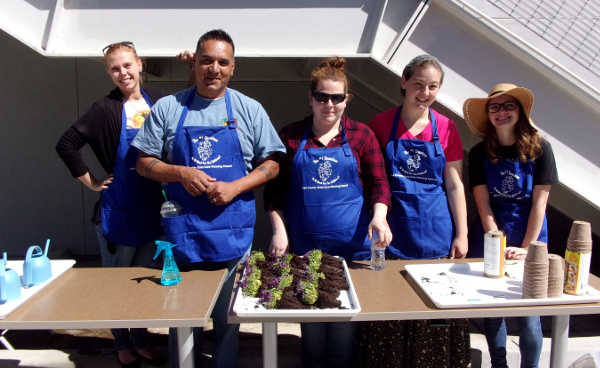


 How to resolve AdBlock issue?
How to resolve AdBlock issue? 








